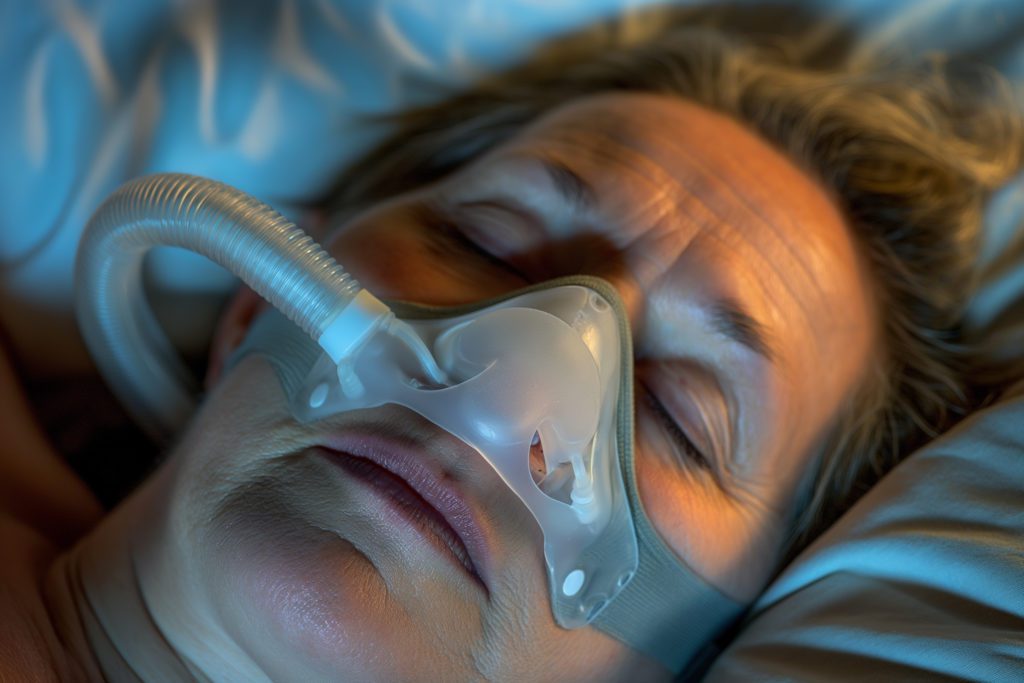
6 Life-Changing Tips for Obstructive Sleep Apnea
Unlock better sleep and health with our top 6 tips for obstructive sleep apnea sufferers. Find out how to manage your symptoms and improve your sleep quality.

Discover expert-led guidance to breathe easier when you sleep
Waking up feeling like you’ve run a marathon instead of catching zZzs? You're not alone.
Obstructive sleep apnea (OSA), a condition where your breathing stops and starts throughout the night, is more than just an annoyance—it's a widespread health concern. And the impact of OSA stretches beyond sleep disruption, posing risks to your cardiovascular health, energy levels, and much more.
However, there's a silver lining: Armed with the right strategies and a bit of know-how, you can significantly improve your sleep quality and overall health. From lifestyle tweaks to medical interventions, we've compiled 6 science-backed tips to help you tackle OSA head-on.
Understanding obstructive sleep apnea
Obstructive sleep apnea (OSA) isn't just about loud snoring or waking up feeling less than refreshed—it's a condition that can significantly impact your health if left unchecked.
At its core, OSA occurs when the muscles in the throat relax excessively during sleep, leading to a temporary blockage of the airway. This blockage not only disturbs your slumber but also reduces the oxygen levels in your blood, causing you to wake up frequently throughout the night.
Here’s a rundown of the common symptoms:
- Loud snoring
- Difficulty sleeping
- Waking up with a dry mouth or sore throat
- Morning headache
- Irritability and mood swings
- Frequently urinating throughout the night
But it’s the unseen effects that are particularly concerning, with increased risks for the following disorders:
- Hypertension
- Heart disease
- Type 2 diabetes
Alarmingly, obstructive sleep apnea currently affects 39 million U.S. adults, while 936 million adults around the world are estimated to have mild to severe OSA. Recent studies highlight the need for awareness and management of OSA, given its potential to drastically affect one's quality of life and overall health.
The first step toward better sleep and healthier living? Understanding the risks and managing the symptoms with lifestyle changes and treatment.
6 helpful tips for managing obstructive sleep apnea
Getting through the night with obstructive sleep apnea (OSA) can feel like an uphill battle, but with the right strategies, you can improve your sleep quality and overall health. Here are 6 tips, backed by research, to help manage OSA effectively:
Adhering to CPAP Therapy
Continuous Positive Airway Pressure (CPAP) therapy is a cornerstone in managing OSA, known for its ability to keep airways open during sleep. Studies highlight its effectiveness not just in improving sleep quality but also in enhancing daytime alertness and reducing the risk of heart disease. Consistent use is key to reaping its full benefits.
Weight management
Carrying extra weight, especially around the neck, can increase the risk of airway obstruction. Modern research underscores the link between weight loss and significant improvements in OSA symptoms: A combination of diet and exercise tailored to individual needs can be a game-changer.
Positional therapy
For some, OSA symptoms worsen in certain sleeping positions, like on the back. Positional therapy, which encourages sleeping on your side, has been shown to reduce apnea episodes. Innovative solutions, from wearable devices to specialized pillows, can help make this adjustment more comfortable and effective.
Avoid alcohol and sedatives
Alcohol and sedatives relax the muscles in the throat, which can exacerbate airway obstruction. Steering clear of these substances, especially in the hours leading up to bedtime, can help mitigate OSA symptoms, as supported by sleep health research.
Regular exercise
Regular physical activity isn't just good for your waistline; it can also improve OSA. Exercise helps by strengthening the muscles in your airway, reducing the likelihood of obstruction. Studies have shown that even moderate exercise can lead to noticeable improvements in sleep apnea severity.
Sleep tracking apps
In the digital age, sleep tracking apps offer a new frontier in managing OSA. By monitoring sleep patterns and providing insights into sleep quality, these apps can help identify triggers for apnea episodes and track the effectiveness of treatments. While not a substitute for professional medical advice, they can be a valuable tool for optimal sleep hygiene.
Incorporating these strategies into your daily routine can make a significant difference in managing obstructive sleep apnea. Remember, consistency is key, and working closely with healthcare providers to tailor these tips to your specific situation is crucial for optimal outcomes.
Additional resources and support
Managing obstructive sleep apnea (OSA) doesn’t have to be a solo journey. There’s a wealth of resources and communities out there ready to offer support and guidance. For starters, sleep clinics can provide professional advice and personalized treatment plans. These clinics often host workshops and information sessions to help you understand your condition better.
Online forums and support groups are invaluable for connecting with others who are walking the same path. Websites like the American Sleep Apnea Association offer forums where you can share experiences, tips, and encouragement. Additionally, social media groups dedicated to sleep apnea can be a source of daily support and a place to ask questions in a judgment-free zone.
Don’t overlook mobile health apps designed for sleep tracking and improvement, which can offer insights into your sleep patterns and progress over time. Remember, reaching out for support, whether online or in person, can make all the difference in your journey towards better sleep and improved health.
Working towards better sleep
It's clear that managing obstructive sleep apnea is about more than just tackling nighttime disturbances—it's a step towards enhancing overall quality of life.
The tips we've explored, from embracing CPAP therapy to fine-tuning our sleep environment, underscore the importance of proactive management. But the most effective strategies are personalized ones, developed in consultation with healthcare professionals who understand your unique needs.
So, let's view managing OSA not just as a challenge, but as an opportunity to transform our health.
FAQ
Can lifestyle changes alone cure obstructive sleep apnea?
Lifestyle changes such as weight loss, quitting smoking, and adjusting sleep positions can greatly improve symptoms, especially in mild cases. However, moderate to severe OSA often requires medical treatments like CPAP therapy or surgery, as anatomical factors may continue to obstruct airflow.
What are the warning signs of obstructive sleep apnea in children?
Children with OSA may snore loudly, experience restless sleep, bedwetting, morning headaches, and difficulty concentrating during the day. Hyperactivity and behavioral problems often arise due to poor sleep. Untreated pediatric OSA can impact growth, learning, and overall development.
Are there alternative treatments to CPAP therapy?
Yes, alternatives include oral appliances that reposition the jaw, weight management, positional therapy, and surgical options such as tonsillectomy or maxillomandibular advancement. Hypoglossal nerve stimulation and myofunctional therapy are also emerging treatments for certain cases.
How can I tell if my CPAP therapy is working effectively?
Can weight loss completely resolve obstructive sleep apnea?
Weight loss can significantly improve OSA symptoms by reducing fat deposits around the neck and improving airway function. However, some individuals may still experience OSA due to structural airway issues that require ongoing treatment beyond weight management.
Can obstructive sleep apnea be misdiagnosed as other conditions?
Yes, OSA symptoms such as fatigue, poor concentration, and mood changes are often mistaken for depression, anxiety, or insomnia. Many people go undiagnosed until they undergo a sleep study, which can accurately detect apnea events and breathing patterns.
Can obstructive sleep apnea impact driving ability?
Yes, untreated OSA can lead to excessive daytime sleepiness, slower reaction times, and impaired concentration, increasing the risk of accidents. Many countries require individuals with diagnosed OSA to undergo treatment before receiving or renewing a driver's license.

Written by
Georgia Austin
Professionally trained copywriter, editor, and content marketing strategist with over 7 years of experience—working with brands like Nike, Siemens, Toshiba, Tommy Hilfiger, Culture Trip, and Klook.
Download Pillow
Get help
Press & News
Legal
Connect
X (Twitter)
Company
Copyright © Neybox Digital Ltd.



